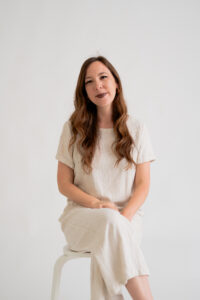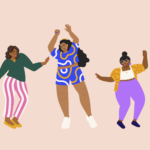Our bodies are vessels that are very good. They mediate our experiences with the world and are truly awe-inspiring in what they can do — so nuanced, so detailed, so intentionally relational.
But too often, this wonder and awe isn’t what women experience in relation to our bodies, and especially in regards to the most intimate aspects of the ways we function. In surveys by Statista, 60% of U.S. teenagers surveyed stated society teaches people to be ashamed of their periods, 78% of U.S. teenagers surveyed stated at school they are taught more about the biology of frogs than the human female body and 81% of teenagers surveyed stated there needs to be more in-depth education about menstrual health.
These statistics cause a range of emotions within me: They cause me to feel sad our society teaches women and men to believe there is something intrinsically wrong and shameful about the natural functions of the bodies of half of its population, especially when these bodies are powerful and oriented toward bringing life into the world. They cause me to feel angry our society values women so little that we would rather talk about trivial things because it is more comfortable, at the expense of women and women’s health. And they cause me to feel moved to action, to talk about my body, to be educated and to educate, so we can change the stigmas surrounding the female body for our daughters and sons, for our sisters and mothers, for our friends and for ourselves.
So, in this issue, we talk about the body: in health, motion, beauty and specifically, female reproductive health. We think about period equity and stigmas surrounding menstruation in the transition from girlhood to womanhood. We study female anatomy and the complexities of the ways our reproductive system works. And we hear about three women’s journeys with common medical difficulties, including polycystic ovary syndrome, endometriosis and menopause. We hope these stories help you to better understand your body and to know you’re not alone in having questions about it.
Taboos surrounding talking about our experiences of being female-bodied compound the physical and emotional pain we experience, because silence isolates us. It’s time to change this. Women’s bodies are good and ordered and powerful. There is nothing bad or shameful about them.
This issue is a celebration of the female body, all it is and all it can do. May we be proud we menstruate, knowledgeable about the ways our bodies function, and empowered to speak about the truths our bodies convey. And may we abide well and abide abundantly in these beautiful, complex vessels that allow us to live and move and have our being in love as we go all along the way.
Joy,
Mia


